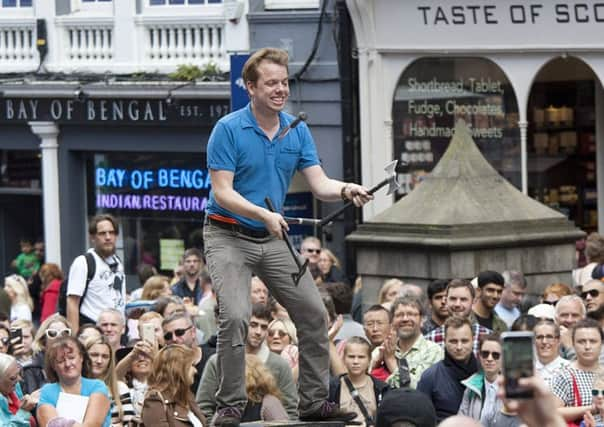Brian Ferguson: Edinburgh's Festivals should seriously consider starting in July


It was only a brief sign, but it was there all the same, a tell-tale moment of resignation that I was about to stray into an area she would much prefer was out of bounds. Questions about the impact of the recent terror attacks, the Brexit effect and claims that Edinburgh’s congested streets were risking the city becoming the new Venice were happily batted away. For some strange reason the issue of when the Fringe should be staged was the only one to cause any discomfort.
The response was remarkably similar to the one I have had from the film festival’s artistic director, Mark Adams, whenever I have broached the subject of whether his event should return to its old August slot. Ms McCarthy actually went as far as to suggest the question of when the Fringe should be staged was a “boring” one as far as she is concerned.
Advertisement
Hide AdAdvertisement
Hide AdBut the inescapable fact is the Scottish holidays will be all but over in a week’s time - when the Fringe, the Edinburgh International Festival and the book festival will still have a fortnight left to run. Now, I would concede that would not be much of an issue if Scottish families gave the festivals a wide berth. But all the evidence suggests that is now certainly not the case, meaning a lot of potential ticket sales are being lost.
Anecdotal evidence from promoters suggests a significant drop at the Fringe box office in the final week, which can almost entirely be attributed to the end of the Scottish holidays.
Admittedly, it has been nearly 20 years since the Fringe last moved its dates - to a week earlier in the calendar. For a long time since, finishing the event on an English August bank holiday felt like the right way to wrap things up. That dates move caused no end of controversy for the then Fringe director, Hilary Strong, who upset the Edinburgh International Festival by taking her event out of sync for the first time since their formation in 1947. Fringe promoters were left trying to work out whether to run for a fourth week, while there was a real shortage of buzz during the first week.
But Fringe audiences, venues, producers and performers were quick to adapt and the beginning of August quickly became the busiest time.
This has been even more the case since the EIF finally brought its dates forward in 2015 and there would seem little point in the Fringe disentangling itself again.
But the big question is whether they would be any less busy if they began a week or two earlier?
Two decades ago, the big issue for the festivals was about timing events to suit visitors from south of the border or overseas. But the audience drawn from the population of Edinburgh, as well as from Fife, Perth, Dundee and West Lothian, has steadily grown more than anyone could have anticipated. The festivals have done the hard bit in winning over many people - but there is undoubtedly more that could be done.
Improving transport links, particularly late at night, and encouraging and developing a greater geographical spread of venues around Edinburgh, would make a big difference.
Advertisement
Hide AdAdvertisement
Hide AdFrankly, the main festivals now feel out of kilter with the rhythm of life in Edinburgh and Scotland. If the festivals continue to grow in popularity this anomaly is only going to be more noticeable. If the festivals are serious about growing their reach a serious look at when they are staged should be a priority.